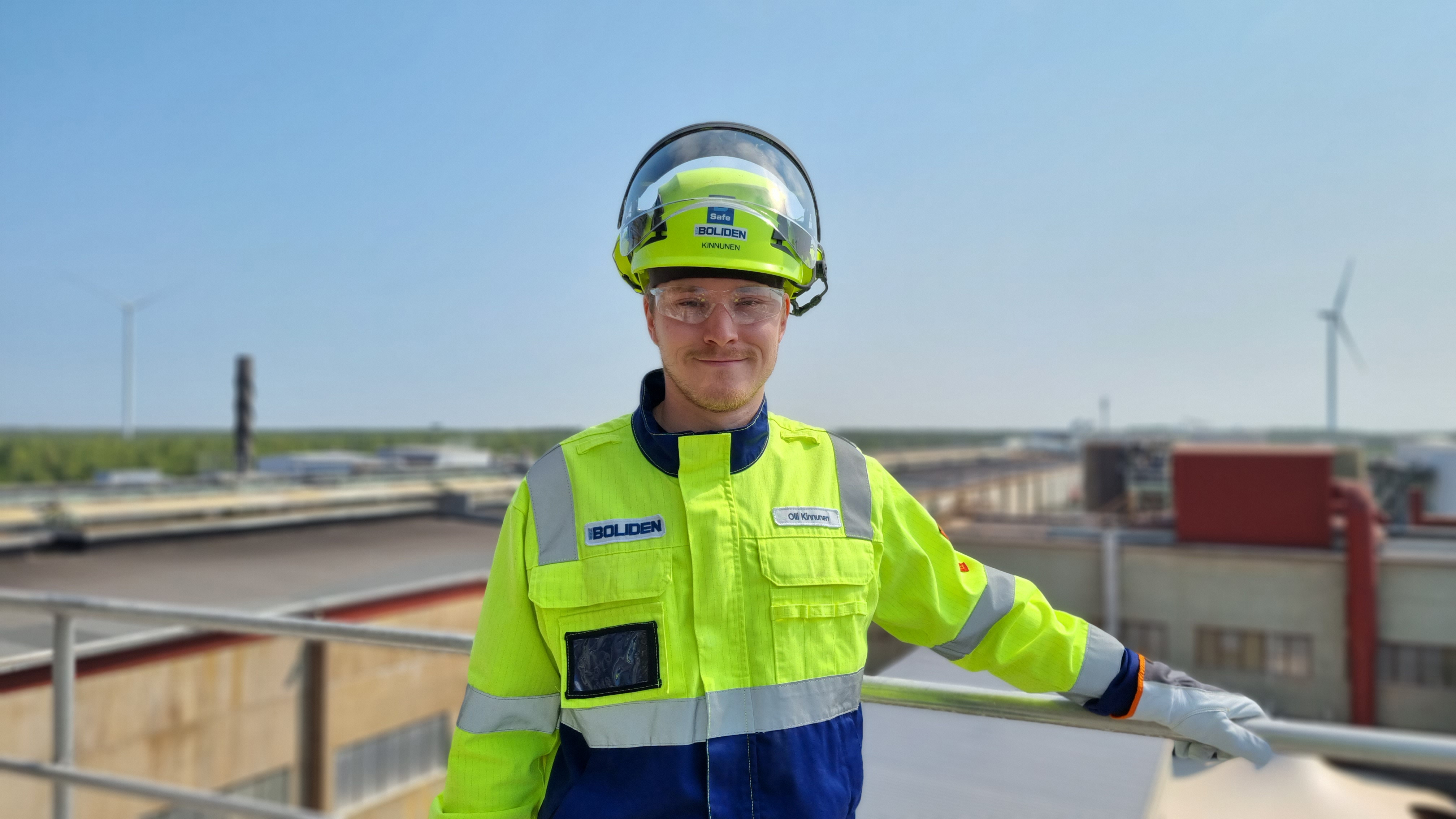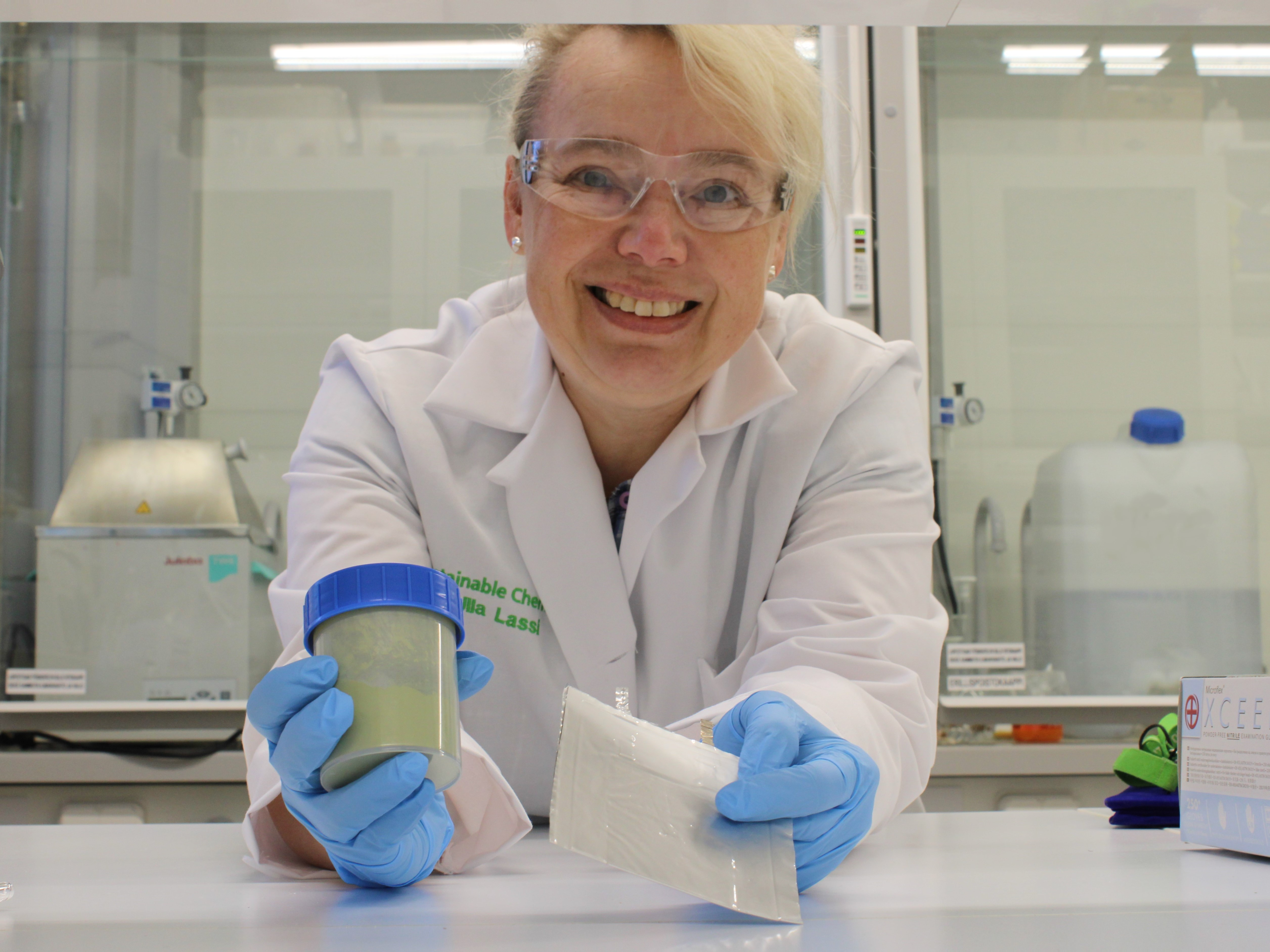Boliden Kokkola on the way to climate goals – university cooperation produces bold new experts

Boliden Kokkola and the University of Oulu work together to reduce emissions from zinc production. In his master's thesis, Olli Kinnunen studied the energy efficiency of zinc electrolysis. Now, he continues his work at the smelter as a process engineer.
Boliden aims to reduce CO2 emissions by 40% by 2030. The company wants to be the world's most climate-friendly and respected producer of metals.
"Electrolysis in zinc production requires large amounts of electricity, and the Kokkola zinc plant is one of Finland's largest individual consumers of electricity. The green transition will increase the demand for zinc due to its use in the manufacture wind and solar power plants, electric vehicle batteries and steel structure protections", says Justin Salminen, Manager, Strategic Projects at Boliden Kokkola and Boliden smelters.
At Boliden's Kokkola zinc plant, efforts are underway to improve the energy efficiency of the plant's processes and the utilisation of production side streams. Long-term research cooperation with the University of Oulu plays a key role in this work.
"We seek out solutions through joint research and thesis commissions. Students enjoy working with businesses in the industry when they can directly apply their skills in practice. Cooperation also opens doors to the industry, as both sides are familiar with each other already before graduation", says Professor Ulla Lassi at the University of Oulu.
Olli Kinnunen, who is finishing his master's thesis at Boliden Kokkola, is a good example of this type of cooperation.
From a summer intern to a process engineer at the zinc plant
Despite his young age, Kinnunen is already a long-time Boliden employee. He first joined the Kokkola zinc plant as a summer intern in 2015 while studying chemical engineering at Centria University of Applied Sciences. After graduation, he continued his studies in process engineering in the University of Oulu. His work at Boliden also continued, most recently in the form of a commissioned master's thesis.
"I started as an employee at the electrolysis department in Kokkola and progressed to the position of foreman. Now, my master's thesis is nearly finished, after which I will continue at the plant as a process engineer," Kinnunen says.
In his master's thesis, Kinnunen investigated ways to improve the energy efficiency of zinc electrolysis. He conducted test runs on the plant's mini-electrolysis equipment and studied how optimising the temperature and zinc content of the zinc solution can improve the current efficiency of electrolysis and reduce its specific energy consumption. "The ultimate goal is to consume less electricity per tonne of zinc produced.
"It is important that Boliden is committed to reducing emissions from production. Environmental issues are also important to me, and it is great that I can continue to contribute to achieving emission targets in my own work", Kinnunen says.
Plant samples directly to the university laboratory
The University of Oulu and Boliden Kokkola are also training new doctors for the metal processing industry. Recent doctoral dissertations have developed tools for thermodynamic modelling of sulphate-containing solutions and a new process for utilising anode deposits in electrolysis production.
Collaboration ranges from bilateral, commissioned studies to jointly funded public research projects, the latter of which have resulted in numerous scientific publications.
In the ongoing TOCANEM (Towards Carbon Neutral Metals) project, Finland's leading universities and companies in the metals processing industry are developing carbon neutral metal production. The University of Oulu coordinates a project in which Boliden Kokkola is responsible for piloting the processes to be developed.
"At the heart of industry-university cooperation are experimental activities, which are needed for the continuous development of our processes. The university's equipment and expertise complement our own research laboratory", Salminen says.
The Sustainable Chemistry Research Unit of the University of Oulu, led by Professor Lassi, operates in the Kokkola University Consortium Chydenius, which is located in the same area as Boliden Kokkola.
"Our location allows us to experiment with fresh factory samples that do not necessarily withstand long preservation and transportation. Authentic industrial samples are valuable for research, as they contain impurities created in the process", Lassi rejoices.
Long-term research and development work has yielded valuable fruits, but much remains to be done.
"Our processes must adapt to the fact that there are more and more impurities in the raw materials coming to the mill, for example due to the increasing use of recycled raw materials. At the same time, legislation tightens the environmental requirements for production. We must keep up with technological developments and remain one step ahead of our competition", Salminen says.
Text: Marjukka Puolakka

